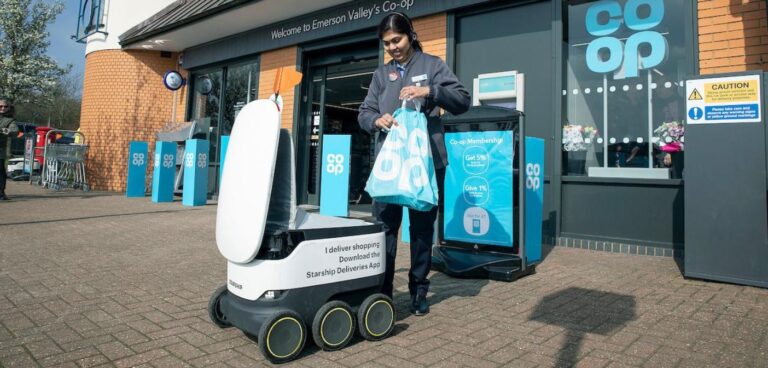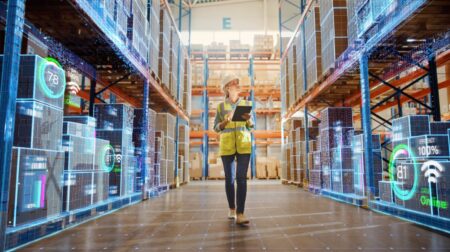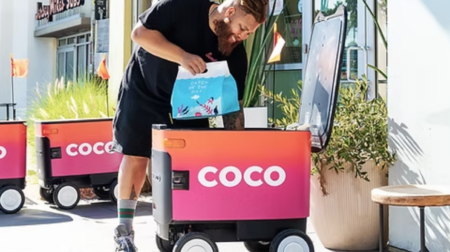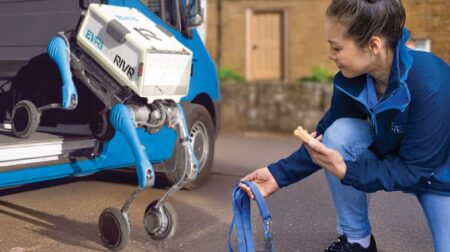Co-op has confirmed plans to extend its partnership with Starship Technologies, adding new robots to take the total fleet to 500 autonomous vehicles across the UK, while launching robotic delivery services in five new towns and cities.
The convenience retailer – reportedly the first major UK supermarket to use robots for home delivery – will increase the robot fleet by over 300 by the end of the year.
The robots are expected to operate in five new towns and cities, with Cambridgeshire the next location after Co-op and Starship launched the emission-free autonomous delivery service in Milton Keynes in 2018, and Northampton in 2020.
Alastair Westgarth, CEO of Starship Technologies, said: “We are pleased to extend our hugely successful collaboration with Co-op and bring the benefits of autonomous delivery to thousands more people across the UK.
“More and more people are realising that it doesn’t make sense to drive to the store for ‘top up’ groceries when the hassle can be removed through autonomous, contactless and environmentally friendly delivery. Ultimately, we want to save time and money for our customers, and make their lives easier in a sustainable way.”
Shoppers can choose from over 3,000 grocery items, which are delivered in as soon as 20 minutes through the Starship Food Delivery app, which is available for download on iOS and Android.
Users choose from a range of food or drink items, then drop a pin where they want their delivery to be sent. They can then watch as the robot makes its journey to them, via an interactive map. Once the robot arrives, they receive an alert, and can then meet and unlock it through the app.
Chris Conway, head of e-commerce, Co-op, said: “Our focus is to continue to innovate and look for new and better ways to do business in our communities while expanding access to our products and services.
“In addition to offering quality and value quickly, easily and conveniently, we need to do this sustainably, and by working collaboratively with Starship and other partners with shared values we can ensure we further reduce greenhouse gas emissions, something that is essential if we are to have a healthy and sustainable natural environment to pass on to future generations.”








